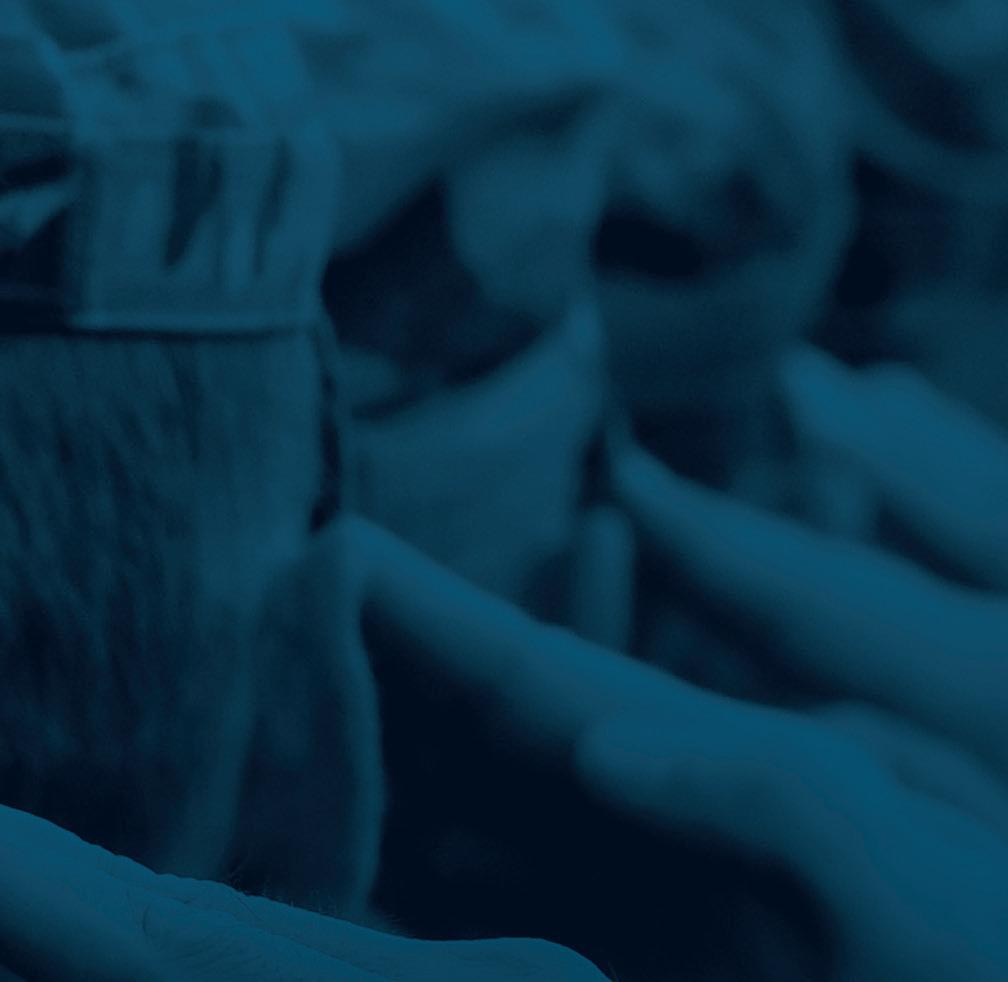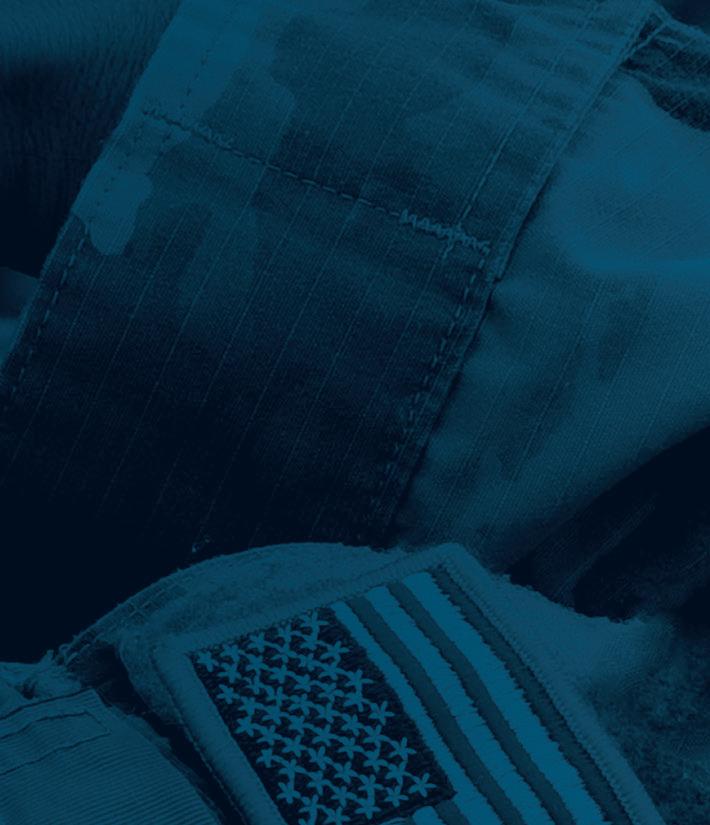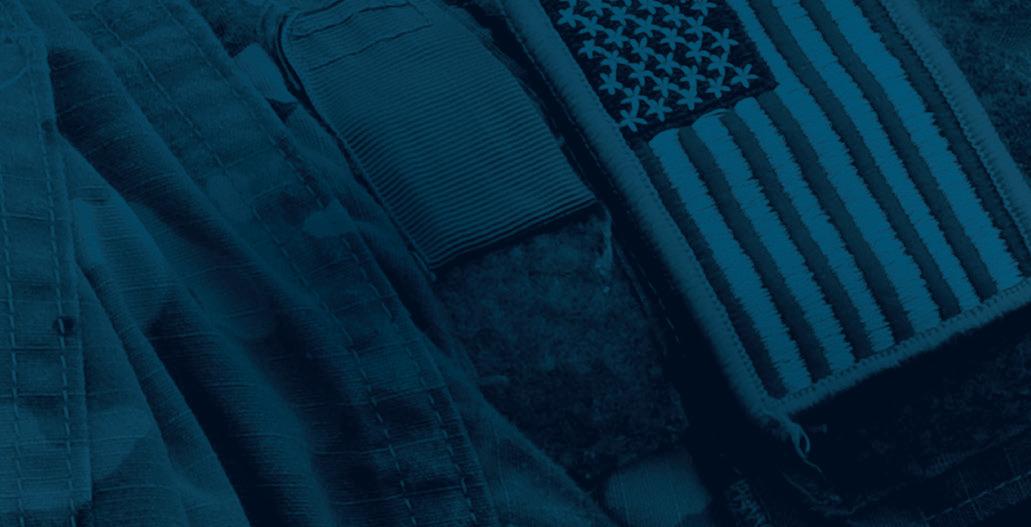AframNews.com
“Addressing


Current & Historical Realities Affecting Our Community”





“Addressing






By: Roy Douglas Malonson
“I’m grown!” It’s a phrase echoed in countless Black households across America, o en followed by rolled eyes, heavy sighs, or a quiet prayer from a weary parent. But here’s the truth: being grown isn’t just about age. It’s about responsibility. And somewhere along the line, we’ve allowed the de nition to slide. Across the country, a growing number of young Black adults are still living at home with no job, no income, no plan—and yet are quick to declare their independence. While economic factors play a role, there’s a deeper issue at hand: a generational identity crisis, and it’s shaking the very foundation of the African American household.
Let’s be real. In the middle of the day, a mother is at work, a father is picking up a second shi , and their
adult child—21, 25, even 30—is in the bedroom scrolling TikTok, playing PS5, or dreaming about starting a rap career that’s still “in the works.” No résumé. No rent contribution. No groceries brought in. But the moment accountability shows up? “Don’t talk to me like I’m a child. I’m grown.”
Where did this come from?
Some blame the culture. We’ve glamorized so life dreams and online fame without showing the grind behind it. Others blame the economy—sky-high rent, student loan debt, and job markets that seem rigged against young Black professionals. But many elders in the community are beginning to ask: Is it economic hardship—or is it entitlement? Home on pg. 3
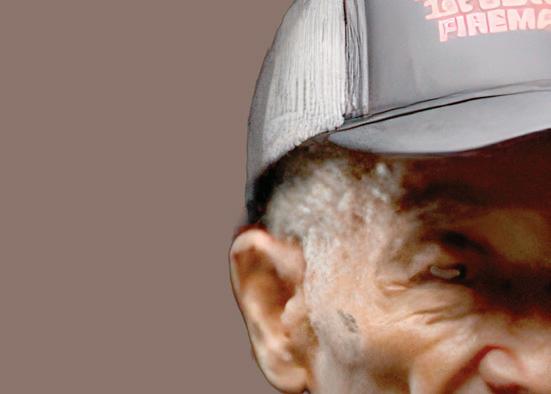









Milton C. Alford was a groundbreaking African American re ghter in Houston, Texas, who played a vital role in advancing both public service and civil rights in the city. In 1955, a er the annexation of the predominantly Black neighborhood of Clinton Park, Alford and nine other Black volunteer re ghters were recruited into the Houston Fire Department. A er completing their training at the re academy, Alford and eight of his peers graduated and joined the force. He went on to serve nearly 27 years, eventually retiring as an inspector. Alford is remembered as a pioneer who helped break racial barriers and opened doors for future generations of Black reghters in Houston.
Milton C. Alford departed this life May 6, 2025. He leaves to cherish his memories Children: Milton V Alford and Rhonita Alford Scott.
With solemn reverence, we commemorate Milton C. Alford of Houston, Texas, whose life came to an end on May 6, 2025 at the age of 97, leaving behind cherished memories.
As we bid farewell to this luminous soul, let his loved ones carry forward the torch of his memory, illuminating the path ahead with the warmth of his love and the brilliance of his spirit. ough Milton may journey beyond the horizon of our sight, his essence remains woven into the very fabric of our being — a guiding light in the darkness, a beacon of hope in the night.
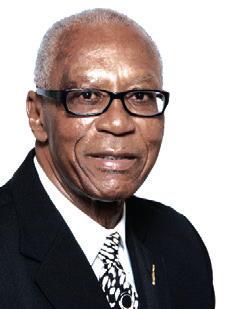
Bobby Mills, Ph.D.
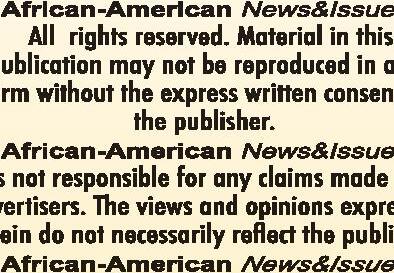



e law is righteous. Even though, the individuals who are responsible for law enforcement as well as the pursuit of justice are sometimes unrighteous. erefore, due process must always be the heart and soul of America’s Justice System. A strong democracy requires individuals to be educated in both spiritual and secular matters.
e Founders created a mass universal educational system.
e education of the masses, not just socio-economic elites.




e function of an education is enlightenment and the relentless pursuit of Truth. America must lead with democratic values, not bullying tactics. Sadly, most Americans have become bitter rather than better. America’s bitterness and societal dysfunction shows-up especially in mass-shootings among public school and college students.
e purpose of education is to spiritually enlighten. Individuals who have many positive experiences and prospects tend not to engage in self-pity.
e recent mass shooter at Florida State University (FSU) had a pity-party personality. America needs a spiritual moral revolution of values, because values dictate lifestyles and institutional structures. Too many Americans are willing to grieve the Truth by telling lies and seeking to accommodate lying by going along to get along. Individuals


should not grieve the Truth, but resist: “all bitterness, and wrath, and anger, and clamour, and evil speaking, be put away from you, with all malice: and be ye kind one to another, tenderhearted, forgiving one another, even as God for Christ’s sake hath forgiven you.” (Ephesians 4: 31-32). More importantly, “Let no man deceive you with vain words: for because of these things cometh the wrath of God upon the children of disobedience. Be not ye therefore partakers with them.” (Ephesians 5: 6-7). America, we must become spiritually and morally better before it is too late! Evil has a stronger power to in uence individuals than good. Evil is of this world, and the father of the world is the devil. Good is of God, and no one is good all the time, But God! e 2024 Presidential election was a de nitional watershed election concerning constitutionally who we say we are. Sadly, politics in America is no longer normal. In fact, politics is upside down and has become spiritually and morally abnormal. Moreover, American society has become upside down, because we are engaging in an internal spiritual political war between the I, Me, and Self de nitions within too many Americans. e de nition of (I) is de ned by EGO, tendency to edge God out. Me is the spiritualinternal de nition of an individual’s self-re ection on his/ her personal relationship with God, ontological being that compels individuals to say Lord have mercy upon me a sinner. Self is simply an individual’s spiritual/ moral character in

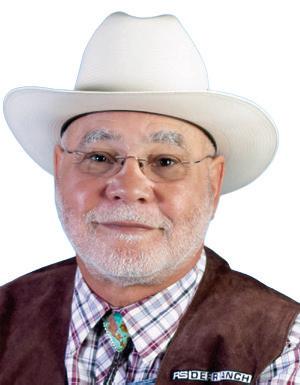
Roy Douglas Malonson, Publisher
businesses isn’t just a trend. It’s a form of resistance. It’s a path to economic self-sufficiency. And it starts with intentionality:
• Choose Black-owned products and services consistently.
• Bank with Black financial institutions.
• Teach youth the value of ownership and economic literacy.
• Promote Black business directories in churches, schools, and online.
In the United States, the average Black dollar circulates in the Black community for just six hours. By comparison, the dollar circulates 20 days in Jewish communities, 17 days in Asian communities, and 30 days in white communities. is isn’t just an economic stat—it’s a warning light ashing at the core of our nancial foundation. The reality is, Black Americans have over $1.6 trillion in buying power, but most of that wealth never reinvests in our neighborhoods. It goes straight into the pockets of corporations that don’t hire us, don’t live among us, and don’t support our future. This isn’t new. Black Wall Street in Tulsa, Oklahoma was once a thriving hub of Black-owned businesses, banks, and wealth. That legacy was destroyed—not just by bombs and violence—but by decades of policy, disinvestment, and consumer conditioning that followed. Today, we face a different but equally damaging threat: economic leakage. Every time we choose convenience over community, a dollar disappears. Every time we prioritize name brands over neighborhood brands, we miss the chance to create generational wealth. But we can turn it around. Supporting Black-owned


Read more at aframnews.com keeps our

We also need more than just consumers—we need creators and distributors. We must build supply chains, own manufacturing spaces, and create infrastructure that wealth in our hands.

Our communities don’t lack talent, vision, or creativity. We lack circulation.
If we could extend the life of our dollar to even one day, it could mean billions more reinvested into our schools, jobs, housing, and futures.
It’s time to stop waiting for external change and start making internal commitments. Because until we control our economy, we’ll never truly control our destiny.
The Black dollar must not only be earned—it must stay.
By: Bobby E. Mills, PhD
Women are outperforming males at every socio-economic level in American society. e spiritual question is why? At the same time, marriage is viewed as a socio-economic equal status union. Even though God designed marriage as a spiritual union between a male and a female, not as a socio-economic union: “Be fruitful, and multiply, and replenish the earth, and subdue it: and have dominion over the sh of the sea, and over the fowl of the air, and over every living thing that moveth upon the earth.” (Genesis 1: 28). Instead of adhering to God’s spiritual command, individuals have been boldly attempting
minion over each other by instituting and even glorifying sexism, racism, and classism. erefore, far too many males have turned inward spiritually becoming lovers of themselves; without logically understanding that love is an inward expression of an outward reality. What a shame, because now we have untold societal confusion and social isolationism. e long and short of it all is that family is the basic unit of all societies. When the spiritual concept of family breaks down society begins to morally disintegrate. America has a self- esteem/ self-concept societal problem, and confusion disrupts relationships









instruction.” (Proverbs 1: is a dangerous lifestyle ditionally, we also know a fool, and: “Fools sin: but among been boldly attempting to subdue and have do- and society. Hence, self-esteem is both spiritual in nature as well as socio-

institutionally conditioned by society. Hating each other undermines societal unity, integration, and productivity. Hate engenders fear. Fear creates isolationism. e ultimate form of fear is fear of TRUTH. Fear elected Donald J. Trump to the O ce of the President. Now, America is reaping the whirlwind of attempting to control the uncontrollable: fear. On the one hand, a wise Presidential leader, Franklin D. Roosevelt, said: “the only thing we have to fear is fear, itself”. On the other hand, the Bible spiritually instructs us to know that: “the fear of the Lord is the beginning of knowledge: but fools despise wisdom and instruction.” (Proverbs 1: 7). Fear of the TRUTH is a dangerous lifestyle propositional habit. Additionally, we also know that a “know it all” is a fool, and: “Fools make a mock at sin: but among the righteous there is favour.” (Proverbs 14: 9). Twentyrst century males and females are increasingly becoming, spiritually,
mentally, and socially isolated from each other, because of educational attainments, career ambitions, lifestyles, and social media obsessions. Sadly, only (30%) of graduating high school males are entering college as rst-time freshmen and (58%) of females are entering college as rst-time freshmen. At the same time, the 21 st century workforce is becoming more educationally and technically skill oriented. Hence, manufacturing jobs require technical educational knowledge and skills, not just physical labor. Machines and robots can perform most physical labor tasks. President Trump’s ultimate workforce objectives are to bring manufacturing jobs back to America, despite a lack of skilled workers, and production capacity. For example, (75%) of all the shoes produced in the world’s marketplace are produced in Viet Nam. erefore, will someone please tell President Trump that education levels, technical skills, knowledge a ect workforce composition and capability, as well as production requirement capacity. Pipe-dreaming is an unhealthy socioeconomic habit. Amen!
Decades ago, being grown meant leaving the house at 18—sometimes with nothing but a prayer, a suitcase, and a plan. It meant sacri ce, long hours, and survival.
Home Cont. ourselves on “sticking together.” at’s a beautiful tradition. But sticking together doesn’t mean staying stuck. We can no longer a ord to confuse support with stagnation. We must return to values that upli independence, not excuse laziness. Being “grown” should mean:
ere was pride in providing. Today, some in our community have replaced that pride with procrastination, all while demanding the respect of elders they’ve yet to become.
is isn’t just about “kids being lazy.” is is about a cultural wake-up call. In too many cases, adult children are weaponizing the phrase “I’m grown” to avoid growth itself. It’s not just hurting their future—it’s hurting the family unit.
Parents, meanwhile, are su ering in silence.
ey’re drained emotionally, nancially, and spiritually. Many are working overtime not to take family vacations, but to keep the lights on—for themselves and their jobless “grown” child. What used to be a home of love and discipline has become a place of resentment and tension.
We must also talk about parental guilt. Some parents—especially single mothers— carry guilt from the past. Maybe they were absent due to work. Maybe they overcompensated with leniency. Now, they feel they “owe” their child adulthood without requiring accountability. But here’s a hard truth: Enabling is not love.
It’s time for a cultural intervention.
In African American families, we o en pride
• Holding a job (even if it’s not your dream one)
• Paying some kind of rent or helping around the house
• Contributing to the family— nancially, emotionally, spiritually
• Creating a plan for the future
• Respecting the people who’ve paved the way Community leaders, pastors, teachers, and yes—parents—must start having tough love conversations again. Not to shame our young adults, but to wake them up. Our future as a people depends on it.
Let’s be clear: the world is not waiting on unmotivated adults with Wi-Fi addictions. Rent is due. Bills are real. And grown folks work, struggle, learn, and grow. Period. So the next time someone in your house says, “I’m grown,” ask them this:
“If you’re so grown, then why are you still living like a child?”
It’s time to retire the phrase and replace it with action. Let’s raise a generation that doesn’t just talk about being grown— but proves it. Because in the African American community, survival was never handed to us. We earned it. Now it’s time they do too.
1954. In Brown v. Board of Education, the Supreme Court unanimously overturns the decision of Plessy v. Ferguson and legally mandates public schools to integrate.
1955. Emmett Till is murdered in Mississippi. A 14-year-old black boy, for whistling at a white woman; their acquittal and boasting of the atrocity spur the civil rights cause.
1955. Rosa Parks refuses to give up her seat on a city bus to a white man, and the Montgomery bus boycott ensues.
1957. e Little Rock Nine become the rst African American students to attend the previously allwhite Central High School in Little Rock, Arkansas.

1960. Greensboro University sit-ins spark various forms of peaceful protest against segregation across the United States.



Starting July 1, the Houston Police Department’s entry-level salary will increase to $81,600 per year, making it the highest-paying law enforcement agency in the region, ensuring annual pay raises for officers during their first five years on the force.
On Monday, Texas Governor Greg Abbott signed a bill aimed at creating uniform regulations for the state’s food service industry. Senate Bill 1008 received bipartisan backing, passing the Senate on April 9 and the House on May 5. In a press release issued Tuesday, the Texas Restaurant Association (TRA) referred to it as the “signature bill” of the legislative session.

The City of Dallas has revealed striking new renderings for the planned reconstruction of the Kay Bailey Hutchison Convention Center. houHowever, the rising cost of the project has raised concerns among some city council members.
The City of Conroe is considering a new moratorium on development that would cover the entire city.
The days are limited for one of San Antonio’s longtime taco spots, which has served the Southwest Side since 1962. Oscar’s Taco House will permanently close in a little over a month to make way for a new city bridge scheduled for construction this summer, giving fans a final chance to enjoy its puffy tacos.


Bessie Coleman was a pioneering American aviator who became the first African American woman and the first Native American to earn a pilot’s license. Born in 1892 in Texas, she faced significant racial and gender barriers in the United States, prompting her to move to France to attend flight school. In 1921, she earned her international pilot’s license from the Fédération Aéronautique Internationale. Coleman used her fame to inspire others, especially African Americans and women, to pursue their dreams despite adversity. Her legacy continues to inspire generations of aviators and civil rights advocates.
By: Jarvis Johnson
As Memorial Day approaches, we take time not just to remember the brave men and women who gave their lives in service to this nation, but to re ect deeply on what their sacri ce means to us—especially in communities that have borne a disproportionate share of the cost of war.
severely wounded, Mr. Sasser crawled through open rice paddies under intense enemy re to reach and treat his fellow soldiers. For more than ve hours, he tended to the wounded and inspired others to safety—acts of courage and compassion that re ect the highest ideals of military service.
Troops of the Civil War to the Tuskegee Airmen, and from Vietnam to Iraq and Afghanistan, Black service members have defended this country—even when justice was denied to them at home. We owe them more than gratitude—we owe them action.
Memorial Day is more than the start of summer or a long weekend. It is a sacred moment to honor those who never made it home, and to recognize that many of those heroes came from underserved neighborhoods, like ours. ey were the sons and daughters of working-class families—young people with big dreams, called to serve before those dreams could be ful lled.

Because Memorial Day is not only a time for remembrance. It is a call to responsibility.
If we are to truly honor the dead, we must upli the living.
We must invest in our young people so they are prepared to lead, not just follow.


could be ful lled.


For this bravery, he was awarded the Medal of Honor by President Richard Nixon in 1969. A er the war, Mr. Sasser returned to Texas, studied at Texas A&M University, and later worked for the Department of Veterans A airs. In 2014, he received an honorary Doctor of Letters from Texas A&M. He passed away on May 13, 2024, Land, Texas,
We especially li up the memory of Black soldiers and veterans whose sacri ces have too o en gone unrecognized in our national story. One such hero was Mr. Clarence Sasser.
We especially li up the memory of Black soldiers and veterans whose sacri ces have too o en gone unrecognized in our national story. One such hero was Mr. Clarence Sasser.






Born in Chenango, Texas, just outside of Houston, Clarence Sasser grew up on a farm and graduated near the top of his class from Marshall High School in 1965. He enrolled at the University of Houston to study chemistry, but nancial to attend part-time— making him eligible for the dra .
Born in Chenango, Texas, just outside of Houston, Clarence Sasser grew up on a farm and graduated near the top of his class from Marshall High School in 1965. He enrolled at the University of Houston to study chemistry, but nancial hardship forced him to attend part-time— making him eligible for the dra .



In 1967, he was Army and trained aidman.
In 1967, he was dra ed into the U.S. Army and trained as a medical aidman.







passed away on May 13, 2024, in Sugar Land, Texas, at age 76.







We must care for our veterans with dignity and compassion.

From the United States Colored
United States Colored






And we must work every day to build a nation worthy of their sacri ce—one where opportunity is not de ned by zip code, and freedom is not reserved
ey were neighbors and classmates, dreamers and doers. eir lives were cut short by war—but they will never be forgotten.



So let Memorial Day be more than a moment of silence. Let it be a day of re ection, respect—and responsibility.
Let us honor their memory by ghting for the future they believed in. is is how we keep their legacy
for a few. moment of silence. spect—and responsibility. by ghting for the future they is is how we keep their legacy alive.


In memory. In service. In unity.
In memory. In service. In unity.




On January 10, 1968, ince, Vietnam, his unit was


On January 10, 1968, during a mission in Dinh Tuong Province, Vietnam, his unit was ambushed.









ough
ough













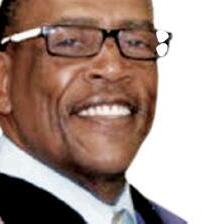
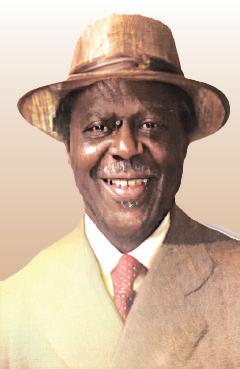



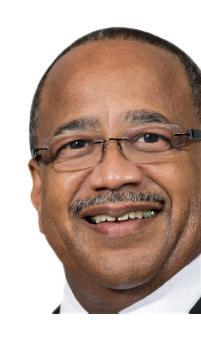
























NOTICE TO PROPOSERS Request for Proposal will be received by Lone Star College for: RFP #25-04-06 – ERP Budgetary Planning Assessment Services. Electronic submittals due by 3:00PM, Wednesday, June 11, 2025. Contact: pamela.johnson@lonestar.edu or (832)813-6782. Must Register to Bid: https://lonestar.ionwave.net/Login.aspx. If registered, please ensure your registration is up to date. For assistance with the on-line registration process, contact MCvendors@lonestar.edu.







By: Travis McGee

maneuvering to accept a Boeing 747 jumbo jet valued at over $400 million from the royal family of the autocratic, oil-rich Middle Eastern nation of Qatar. is seems like a good time to recall the Foreign Emoluments Clause of the United States Constitution:
“No Title of Nobility shall be granted by the United States: And no Person holding any O ce of Pro t or Trust under them, shall, without the Consent of the Congress, accept of any present, Emolument, O ce, or Title, of any kind whatever, from any King, Prince, or foreign State.”
Notwithstanding capitalization, punctuation, and syntax that may seem peculiar today, what it very clearly says is that the president of the United States absolutely may not accept any gi from another country or its ruler unless Congress approves it. As he has with so many laws, Donald Trump has repeatedly violated both the letter and the spirit of the Emoluments Clause. Even so, Trump’s latest salvo in an ongo-
ing campaign of open disdain for the clause is as agrant as it is unsurprising.
Here’s what one of us (Robert) told the national media:
“Trump’s plan to accept a luxury plane from Qatar is blatantly unconstitutional. e concern with foreign gi s is that they can sway a president’s policy and predilections — and there’s little doubt that Qatar wants to gi Trump a ‘palace in the sky’ for exactly that reason. Even in a presidency de ned by gri , this move is shocking. It makes clear that U.S. foreign policy under Trump is up for sale. e juxtaposition with cancelled foreign aid grants and programs for poor and vulnerable people — cancellations that will cost millions of lives unless reversed — could not be starker or more morally grotesque.”
By the way, Qatar spews more climate threatening carbon dioxide per capita than any other country on Earth. Does giving Trump hundreds of millions
have something to do with that?
e American people are right to be morally o ended and furiously opposed to the rank corruption on display here — which is as plain (or should we say “plane”?) as the nose on Trump’s face.
Tell Congress: To accept the “gi ” of a 747 jumbo jet worth more than $400 million from the Qatari royal family would be a new low even for someone as morally ungrounded, awash in corruption, and easily bought as Donald Trump. Congress must use its full authority over emoluments to reject what is essentially a naked attempt at bribing the president of the United States. Click to add your name now.
anks for taking action. For progress,
- Robert Weissman & Lisa Gilbert, Co-Presidents of Public Citizen
What so super about your neighborhood is something we all must ask ourselves? It would be and could be super if it was much more than just a title / another branch of the local government. e Super neighborhood used to have a Super Neighborhood Action Plan (SNAP) which was Capital Improvement Projects (CIP) turned in by Civic Club Presidents to address all issues through CIP budgets in which the City hasn’t had a SNAP matrix in over 13 years and counting. If our communities /neighborhoods actually knew its power I mean residents, taxpayers, businesses, civic clubs, homeowners, and etc. actually being involved, informed, and educated enough about the issues to demand more vs always begging and settling for far less our communities would be farther along than what they are. Representation de nitely matters and holding your representation accountable matters even more. We shouldn’t be focused on accolades and crumbs falling o the decision table, however we should be at the table before decisions are made vs being asked for solutions a er decisions are made, we had zero say so in.
Does issues like high crime and even higher taxes make our neighborhoods super or does it make them super dangerous and expensive to live in? Too many problems not enough proactive solutions. Too many excuses and even more in taxes, but not enough in city services or much needed improvements. At times I think our communities are Super naïve when it comes to accountability. We either waiting in line for FREE stu or learning the latest line dance to celebrate the FREE stu . In order for our Neighborhoods to be Super it requires a lot of commonsense vs nonsense. We know we have problems with crime, drainage, ooding, gentri cation, environ-






tinue to be Super gentri cation, environmental hazards, school closures, undriveable thoroughfares, una ord-
able housing, high taxes, etc. however we still just meet to meet. When the “Elected Employees” do come out we allow them to control the meetings with their agendas vs ours. When we sign up to speak, we are asked what’s the topic and do we want 1,2, or 3 minutes to talk about everything going on in our community, but when they come out to the community, they spend hours talking about nothing and give you even less time to speak if you get to speak at all. Why not treat them like they treat us. ey should be listening and We the People should be doing the talking vs writing questions down on prescreened index cards and etc. Until our communities/neighborhoods are genuinely respected, they will continue to be Super Neglected.














